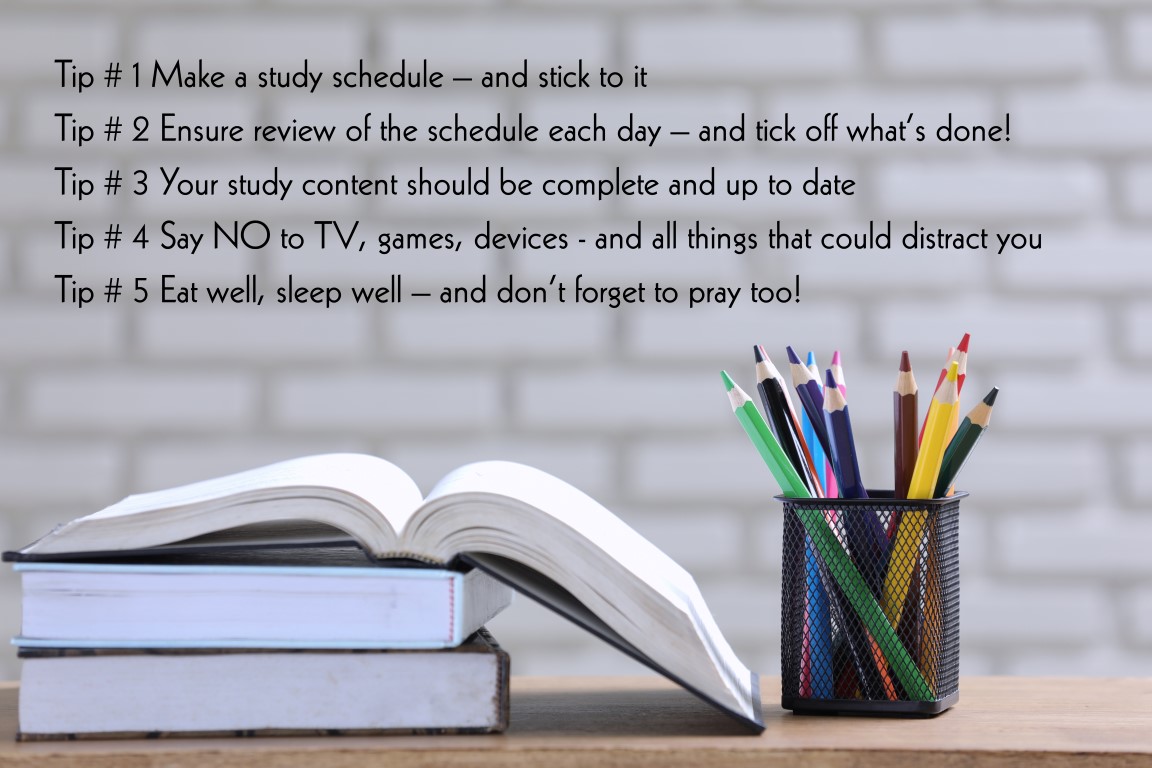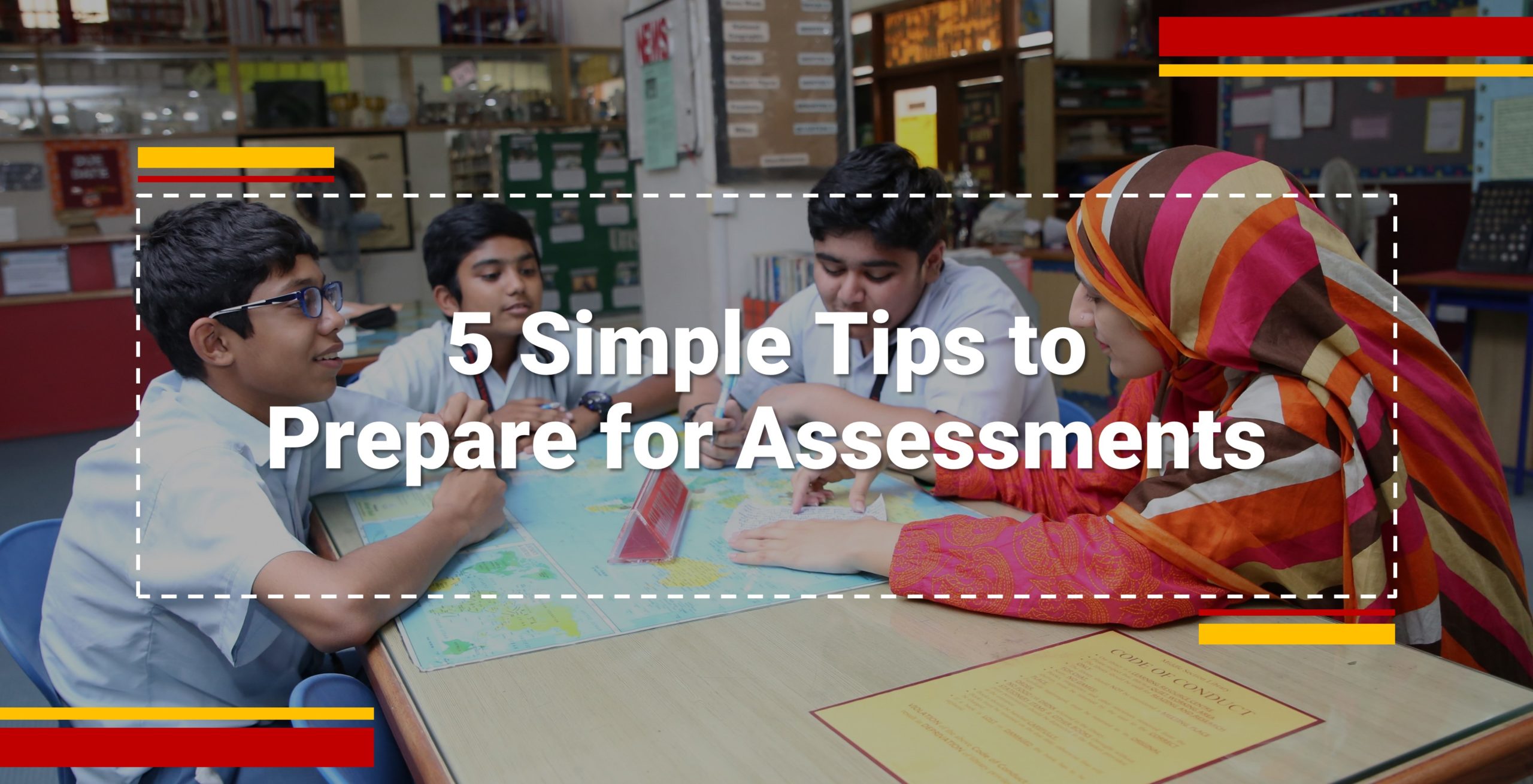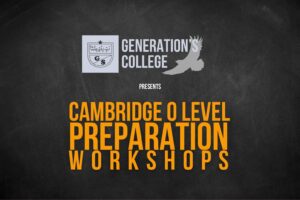5 Simple Tips to Prepare for Assessments
It’s that time of the year. You are gearing up for assessments, and you want to do well!
Everyone wants to do well, and it helps if you have tips to stay focused and manage study time for the best outcomes.
Here are 5 simple tips to help you prepare for assessments, and do well at them!
Tip # 1 Make a study schedule – and stick to it
Make a schedule of what needs to be reviewed each day, e.g. an hour each day for math, an hour for languages on alternate days (Urdu, Arabic and English), an hour on alternate days for sciences (biology, physics, chemistry, geography, etc.).
Your teachers have given you the syllabus for the upcoming assessment.
Make sure you have marked the relevant topics that need to be reviewed.
Also, make a list of the topics that you need some extra help with. Request your teachers to help you understand the topic and give you practice tips.
“Time management is most critical when preparing for assessments,” says Ms Aisha Ahmed, Lead Teacher, English language, Middle Section. “You can practice well if you manage your time with a schedule,” she added.
Tip # 2 Ensure review of the schedule each day – and tick off what’s done!
Making a schedule was step 1, which will remain incomplete and ineffective if you forget to follow it.
We suggest you tick off from the list what’s done and move on to the next topic only then.
If you don’t, there’s a chance you may forget about it or get too worried for the other subjects that need to be studied.
Making a schedule and ticking off what’s done is a smarter way of ensuring you have reviewed all that needs to be done!
“Keep your notes and journals and the syllabi in front of you when planning to prepare for assessments,” says Ms Ayesha Muneeb, Coordinator, Middle Section. “Prioritizing your review topics helps in being prepared.”

Tip # 3 Your study content should be complete and up to date
Your journals, exercise books, handouts and self-study journals should be with you, complete and up to date.
Make sure the work is corrected and you have feedback for improvement from your teachers.
Your study time will be ineffective without the journals, exercise books, handouts and self-study journals to tick off the topics that need to be reviewed.
“Keep your notes and journals and the syllabi in front of you when planning to prepare for assessments,” says Ms Ayesha Muneeb, Coordinator, Middle Section, “Prioritizing your review topics helps in being prepared for assessments in a better way.”
Tip # 4 Say NO to TV, games, devices – and all things that could distract you
We needn’t stress enough on how TV, games, electronic devices such as the PlayStation, distract you from your priorities and objectives.
Preparation days are just too important and you should be able to say NO to these distractions.
After the assessments, as a treat, you should plan to spend time with your family and enjoy your weekend with games and activities.
How about a picnic or a game of scrabble with your siblings!
Tip # 5 Eat well, sleep well – and don’t forget to pray too!
To be able to study smarter, you need to take care of yourself first!
Make sure you have a proper breakfast – daily!
“Sleep early, and wake up early to maintain a healthy sleep-wake cycle,” advises Ms Beena Kohati-Bilal, Coordinator Academics, Middle Section.
Even on weekends, try not to stay awake late and use early mornings to review your work.
And after all your hard work and efforts, make earnest du’aa for Allah Kareem to give you immense success.
Most students tend to take exams and assessments as something frightening.
“Be excited about assessments!” says Ms Aisha. Look forward to the assessments as a challenge and, well, just enjoy the challenge! Challenges are there only to make us stronger, wiser, and smarter!
Is there something you would like to add so that your friends and peers could learn from you? Get back to us in the comments section below.





